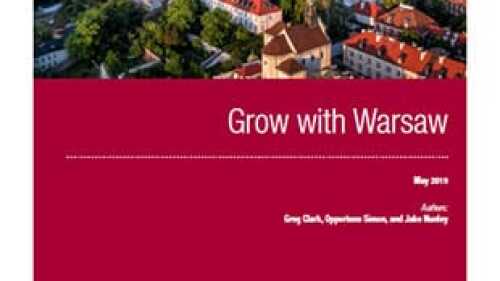Urban and Regional Planning
Under the Clean Energy D.C. Omnibus Amendment Act, the District is planning to move entirely to renewable electricity by 2032, with the goal of cutting the city’s greenhouse gas emissions in half by that year as part of its broader commitment to becoming entirely carbon neutral by 2050. To meet those goals, building owners will be required to make energy retrofits on about half of the buildings in the city. To help owners prepare for these changes, ULI partnered with the DowntownDC Business Improvement District for an Advisory Services panel in July.
According to U.S. Census Bureau estimates, the population of Washington, D.C., topped 700,000 residents last year, the first time since 1975. But the Metropolitan Washington Council of Governments estimates a shortfall of more than 200,000 housing units by 2025 to meet the projected job growth and transportation system performance in the urban core of the D.C. region. A ULI Washington Impact Task Force report addressed two main barriers to opportunities for supply growth and attainability: navigating the entitlement and approval processes, as well as gaining community acceptance through engagement and participation.
A new ULI report argues for bold planning and effective reforms to bring Warsaw to life. Based on a series of workshops that brought together the city of Warsaw and real estate investors, the Grow with Warsawreport concludes that better cooperation between stakeholders will provide a strong foundation for growth in the city and sets out a series of recommendations based on a city competitiveness framework.
Speaking at the recent ULI Europe Conference, two mayors described the paths that elected officials in their cities took in rebuilding from the economic collapse of manufacturing, while embracing diversity as a means to turn around their cities’ fortunes.
With rental rates skyrocketing in many U.S. cities, more states are exploring ways to protect tenants and address the mounting issues of affordable housing, without wading into the controversial morass of rent control, said panelists during the ULI Housing Opportunity 2019 conference.
An area in Cincinnati comprising portions of a highway, the central business district, and the central riverfront along the Ohio River has been selected as the study site for the annual ULI Hines Student Competition. Though based on a hypothetical situation, the ideas competition provides both full- and part-time graduate-level students the opportunity to devise a comprehensive design and development program for an actual large-scale urban site.
ULI Global Chief Executive Officer W. Edward Walter provided highlights of the Institute’s Global Strategic Plan, which will help strengthen member engagement and impact, during remarks at the 2018 Fall Meeting’s closing general session.
While the scenario is fictitious, cities all over the world deal with these sorts of problems on a daily basis. Such scenarios form the basis of UrbanPlan, a high-priority ULI initiative that seeks to broaden the discourse and encourage creative thinking among high school and university students and public officials in tackling some of the most intransigent problems facing urban planners. The fundamentals of UrbanPlan, one of the programs ULI offers members as a volunteer opportunity, were presented to members during a Fall Meeting session.
In April, ULI Advisory Services presented recommended redevelopment possibilities for the 24-acre (9.7 ha) site of Bloomington Hospital—a campus in Bloomington, Indiana, that will move its operations in 2020.
Longtime ULI leader Nina J. Gruen, who pioneered the use of behavioral research to predict market demand for commercial and residential real estate, passed away on September 15, 2017. She was 83. Gruen and her husband, Claude Gruen, joined ULI in 1971, not long after founding Gruen Gruen + Associates, a renowned San Francisco–based firm that continues to provide research-based consulting and implementation services to the real estate industry and public land use and planning policy makers. Gruen, who remained active in ULI throughout her career, was elected as the Institute’s first female trustee in 1982, and was named an honorary member in 1996.







